
A Black Panther: Wakanda Forever character has stolen stolen audiences’ hearts: Namor, also known as K’uk’ulkan, portrayed by Tenoch Huerta. The Mexican actor has an extensive film and TV history—The Forever Purge, Narcos: Mexico, Sin Nombre, and Gueros—but this is his first foray into the Marvel Cinematic Universe. Even though Wakanda Forever is a movie that explores the mourning of both Chadwick Boseman and T’Challa, everyone walks away remembering Namor.
Who is Namor in Black Panther: Wakanda Forever?
Put simply, he’s Marvel’s first mutant and the leader of Talokan. Namor has been revamped for contemporary audiences, trading the comic character’s Atlantis background for a Mayan one.
Tsai Ming-Liang and Lee Kang-Sheng on a joint career in filmmaking
It’s often the silence in the absence of vocalized emotion or explanation that speaks loudest in the works of Tsai-Ming Liang. The silence of the final loyal patrons appreciating one last movie in a dying theater in Goodbye, Dragon Inn, or the lust of two people in love for one another in Days. Through the lens of the camera and the endless emotions that can be read on the face of the best-in-career performances he routinely brings out of his actors, particularly his longtime collaborator Lee Kang-Sheng, actions speak louder than words.
So sitting down and hearing the director speak about his films and career in his own words with depth and detail is almost unusual. While the flashiness of Ginza can feel removed from the settings and content of many of the director’s work, Tsai Ming-Liang was in Tokyo and the luxurious office and shopping complex in the heart of the area to commemorate a retrospective of the Hong Kong director’s career. Ranging from his most beloved features to documentaries to rarely-screened short films, this was a vocal celebration for a man of few words.
And he was not alone. After all, could you really celebrate his feature film career without Lee Kang-Sheng, an actor who, having been scouted from the streets by Tsai Ming-Liang in the production of his TV film Boys, has collaborated and sat at the heart of every production the director has made since. The career of one is defined by the other, so any retrospective of one is also a retrospective of the other. Like two sides of the same coin, they were here in Tokyo, where he first made his mark on the international stage.
‘It was at the Tokyo International Film Festival where I was first discovered while I was still a rookie director,’ he explained, recalling the appearance of his first feature, Rebels of the Neon God, which won the Young Cinema Competition Bronze Award in 1993. Thanks to the award here Taiwanese cinema became more popular in the region and more of his later works would similarly make their bow at the event.
‘Before the debut of my first feature I’d been directing things like TV and plays. I’ve gained a lot of confidence in my work since then, but they aren’t commercial at all and aren’t easy to market, so I think the reason anyone ever saw my work back then and it was able to be seen by the world was because it won an award. I was grateful at the time, but I never thought at the time I would be getting special screenings like this.’
Part of the appeal of Tsai Ming-Liang’s work is his deliberate pace that observes its characters in and with silence. It’s an apparent feature of all his works as he lets his actors inhabit the space they exist in and live through it, rather than driving his characters along a set path where his settings become locations on a journey rather than a lived-in space. Still, it’s a style that only became more pronounced as the creator grew in confidence over the years and gained more experience, with his movies following the release of Goodbye, Dragon Inn in particular being notable for their relative silence.
For this film, the director’s love of cinema as an artistic medium and an outlet for creative expression influenced a style that has increasingly come to define his career and his work. ‘I love cinema and I love this medium, so I’m always thinking about how to take advantage of what this medium offers. When I make a film I’m usually thinking about how to for about one or two years before that, thinking about what the movie should be, what style and look it should have and will tell the best story, things like that. Not the business side of things.
‘For example, in Goodbye Dragon Inn the main character isn’t the people in the cinema but the theater itself, so I was very slow and pondering in order to express the space and unique nature of the cinema. It was that way of creating the film that brought it to the attention of so many within the film world. With the concept of the film the aim had been to create something about how art and ideas can come together in one place like this. My films are primarily driven by the image, as well, and this caused me to emphasize more on the depths found within each image, leading me to more freely try out new styles moving forwards.’
Beyond the depths of his images comes a single constant that remains through all of his films: his collaboration with Lee Kang-Sheng. Having discovered him on the street while he worked in an arcade, their mutual work together on Boys sparked an over-30 year collaboration that has seen him star in every film Ming-Liang has directed in subsequent years. ‘It felt like destiny meeting Lee Kang-Sheng,’ he admitted while talking about their relationship.
His meeting and the chances he had to observe the actor during the film of his early TV and feature works made him want to reflect his life and his own circumstances and tell stories that captured Lee’s inner monologue or gave space to portray himself most clearly on screen.

‘[While working on my first work with him] I paid a lot of attention at the time to his home situation and the circumstances he was in. After creating my first picture with him he became ill, and that illness was incorporated into the film I was making at the time. With my fifth feature, What Time is it There, the film is about a young man whose father had died, and I wanted to write about those and his feelings surrounding that. I always want to capture how feelings change over time and to capture it in Lee’s face. That’s my purpose in making films.’
Perhaps it’s fitting that through the interview until that point and through a lot of Tsai Ming-Liang’s answers about his work that Lee Kang-Sheng himself had sat mostly silently, like an observer over the discussion of a career that the two together have shared. The desire to work together comes from a mutual respect of the other’s abilities and deep-rooted love for the medium and its history, and it’s what drives their dual performances behind and in front of the camera.
‘When movies first began they were silent, they had no lines, and I’m personally not someone who talks all that much either,’ pondered Lee. ‘I like isolation. People often ask me if I’m lonely, but I’m not, I like it. I’m not a fan of places with lots of people mingling around and making noise. Tsai Ming-liang is the same, and he also likes the isolation, and we both prefer these quieter places and movies.
As we’ve made pictures together we’ve had these shared experiences and views, we don’t really like music, and it’s why these movies rarely have any sound and are mostly silent. In Days, Non is from Laos, we don’t understand each other’s languages, but they’re so connected there’s no need to understand their conversation, so we made a more silent and intimate feature.’
It’s a mutual understanding of their shared worldviews and work together, and the way their careers have intertwined so closely, that leaves their partnership in films and the career of Tsai Ming-liang such a unique one within modern cinema. One career wouldn’t exist without the other, and the works which sprouted from their chance meeting and partnership would never have come to be.
‘If I hadn’t met Lee Kang-sheng, the movies I make would not be the same as they are now. I probably would have made a lot more normal movies with a lot of music and dialogue. The circumstances would have been so different. But I learned from Lee his way of life, his rhythm, which had a massive influence on me and led me to making more truthful films.’
For Tsai Ming-liang, his career is an observation of one actor, and the experiences and lives he has discovered and desired to write about through his own life and observing his friend and collaborator of three decades. When Lee was ill, they created a film where he was ill that the director admitted he feels brought out the actor’s best performance.
As the sun set in the heart of Ginza, a festival celebrated the career of a director with a named retrospective, yet the reality is a decades-long refrain celebrating arguably Asian and Taiwanese cinema’s strongest collaborative partnership. It’s a collaboration neither wish to end, and they stated their plans to continue working into the future. There’s more of this world to observe, after all.
The post Tsai Ming-Liang and Lee Kang-Sheng on a joint career in filmmaking appeared first on Little White Lies.
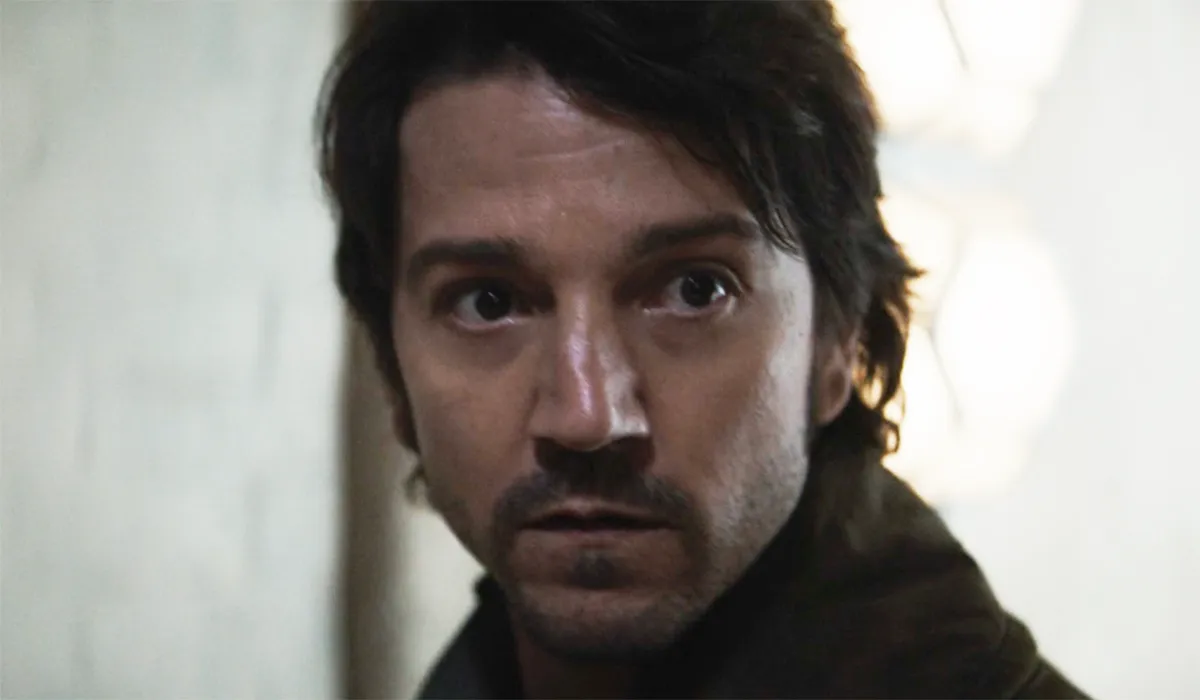
It’s been confirmed for some time that Andor will get two seasons, with the show taking up titular character Cassian Andor all the way through to just before the beginning of Rogue One, the Star Wars movie where we first met the rebel.
Actor Diego Luna, who played the dynamic role, has now shared some insight into the production of the second season in an interview with Entertainment Weekly.
By reputation, Casablanca is the greatest American romance ever put to celluloid. There may be films more avant-garde or technically accomplished, but no film is so compulsively rewatched or intensely adored. US Senator Elizabeth Warren returns to Casablanca with her husband every New Year’s Eve, and Donald Trump even made a (losing) bid to acquire the famed upright piano that is featured in the Paris flashbacks. Casablanca has been so talked about, quoted, and repurposed to ricochet across popular culture that Gen Z’s first encounter might easily be parodies on Saturday Night Live or reruns of The Simpsons.
The problem is that Casablanca’s familiar quotability seems to have immunized it from the critical ebb and flow that has washed over landmarks such as Citizen Kane or The Godfather. Eighty years of romantic nostalgia has left it politically defanged, but in a time of resurgent authoritarian nationalism, it’s worth excavating its message: a full-throated attack on the America First isolationism that had paralyzed the United States under the looming threat of fascism.
At the age of 27, recent Cornell graduate and aspiring playwright Murray Bartlett took the summer of 1938 to travel to Vienna in the immediate aftermath of the Anschluss, where he witnessed the antisemitic Nuremberg Laws come into force in the wake of Nazi annexation. Fleeing Jewish refugees snaked from Marseilles to Morocco, on to Lisbon, then across the Atlantic on the final leg to America—a trek that eventually got scrupulously reported in the newsreel opening film sequence of Casablanca.
Burnett personally smuggled his Jewish family’s property south to Nice, where he stumbled on a smokey nightclub overlooking the Mediterranean that catered to refugees and military officials. A Black pianist from Chicago relieved the tense mood with a repertoire of popular jazz standards. Back in the United States in 1940, Burnett collaborated with writer Joan Alison to rework his observations into “Everybody Comes to Rick’s,” an unproduced three-act play.
Just five days after the Pearl Harbor attacks, Warner Bros. producer Hal Willis discovered the play on his desk and snatched it up at the then-unheard price of $20,000. He assigned sibling team Julius and Philip Epstein to mold it into a screenplay, with Michael Curtiz slated to direct. Taken together, these formative circumstances drive home the point that romance may adorn the film, but its backbone is the plight of refugees displaced by political violence.
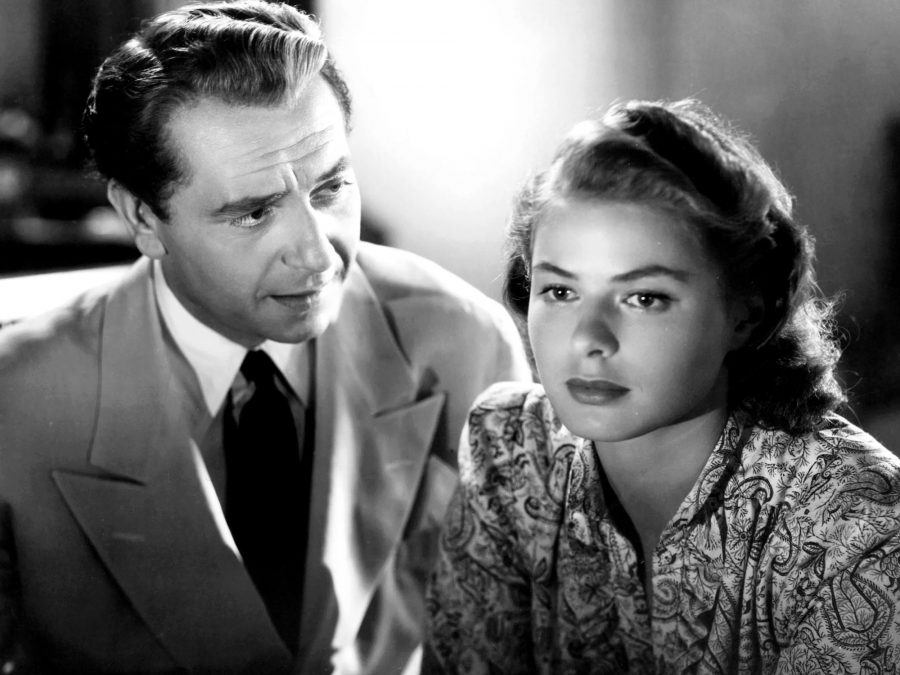
Set in the French-controlled port city of Morocco just beyond the authority of the Vichy puppet government, the story centers on a romantic love triangle between immaculately tailored, chain-smoking saloon keeper Rick (Humphrey Bogart), his enigmatic ex-lover Ilsa (Ingrid Bergman), and her heroic if stolid husband, Victor Laszlo (Paul Henreid), an escapee of a Nazi concentration camp and leader of the Czechoslovak resistance. Rick faces a dilemma. He’s acquired two letters of transit that could whisk the Laszlos beyond the reach of Gestapo officer, Major Strasser (Conrad Veidt), but doing so would irrevocably sunder his romance with Ilsa.
In its wartime era, Casablanca was a dissident plea to the American public to alter course. In the early stages of WWII, a Gallup poll revealed an astonishing 90% of Americans favored isolationism to avoid the fast-ballooning conflict across the Atlantic. But Warner Bros. execs regarded America First isolationism as a stunning betrayal of humanitarian obligations and a greenlight to fascism. Brothers Harry and Jack Warner threw their support behind the Anti-Nazi League and began churning out anti-isolationist motion pictures, such as Confessions of a Nazi Spy. The blowback was so powerful that Senator Gerald Nye of North Dakota, a leader of the America First organization, convened a hearing to upbraid them with accusations of warmongering. Under a barrage of questioning, Harry replied indignantly, “I am ready to give myself and all of my personal resources to aid in the defeat of the Nazi menace to the American people.”
Harry kept true to his word in Casablanca. Rick moves from burnt-out cynicism and political isolationism—“I stick my neck out for nobody”—to shooting down a Nazi officer and earning Victor’s gratitude for abandoning his misanthropic neutrality: “Welcome back to the fight. This time, I know our side will win.”
Casablanca is unmoored from the America First ethos in other ways. Just as Rick has rebuffed Victor’s pleas for the letters of transit, German soldiers burst into song with “Die Wacht am Rhein,” taunting refugees from the German war machine. In response, Rick nods approval to the band to launch into a stirring rendition of “La Marseillaise.”
The French National Anthem acts as the film’s patriotic ballast. It congeals refugees who have fled from dozens of countries and warzones behind a common cultural touchstone, silencing the bellicose nationalism of the Germans but also answering head-on the America First position that moral obligations are neatly trammeled by national borders. Authoritarian regimes do not stop at national boundaries, and, as the chorus of voices affirms, neither does the determination to throw off the yoke of tyranny.
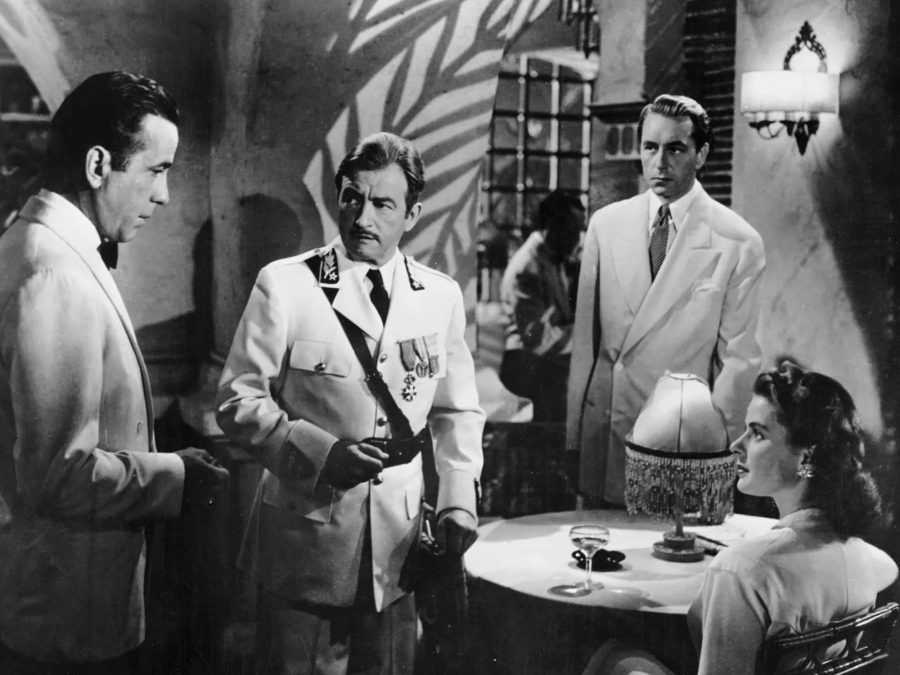
The cast literally represented the transnational coalition of refugees that were pleading against America First isolationism. Nearly all of the roughly 75 actors who appeared on screen were refugees or immigrants, hailing from more than 30 nations, and of the 14 who earned screen credit, only three were born in the US: Humphrey Bogart, Dooley Wilson, and Joy Page. Ingrid Bergman was Swedish, Paul Henreid was Austro-Hungarian; Peter Lorne, portraying Ugarte, was a German-speaking émigré from Slovakia; and most interestingly, Conrad Veidt, portraying Nazi villain Major Strasser, was a German refugee who’d been detained by and then fled from the Third Reich after it rose to power in 1933. The composition of the cast was itself evidence that the carnage being visited on Europe was washing up on American shores and could not be ignored or contained.
Casablanca would later become congenial to future generations of Americans in part because it rejected a key feature of the America First sensibility: its deep-seated racism. The intimacy depicted between a Black pianist and a white saloon keeper who knock back drinks together and bind their fates in friendship would have been nearly unthinkable in early 1940s America. Tom Doherty, a cultural historian at Brandeis University, notes that Casablanca doubles as both a geographical and imaginative space: “Casablanca cajoled Americans to realize their higher aspirations, not just by confronting fascism abroad but by imagining a community that had toppled racial hierarchies.”
From our vantage point in 2022, Casablanca’s message seems not to be breaking through. Nativist isolationism has rippled across the globe over the last decade. Prime Minister Narendra Modi rose to power on a wave of Hindu nationalism scapegoating Muslims. The Swedish right has muscled its way into parliament by pinning blame on immigrants. Hungary’s Viktor Orbán has seized on the Great Replacement conspiracy theory to consolidate domestic support. Meanwhile, back in the United States, Minority Leader Kevin McCarthy has announced he’ll choke resources to Ukraine to hoard them at home, thereby aligning foreign policy with Steve Bannon’s far-right vision of America First.
Noah Isenberg, a professor at the University of Texas at Austin and author of We’ll Always Have Casablanca, told me that the aspirational spirit of Casablanca is a counterblast to divisive xenophobic politics.
“Donald Trump ripped at the fabric of democracy—capitalizing on a global pandemic to sow fear and division, stoking contempt for Syrian refugees, and launching a coup to cling to power when he lost the election,” Isenberg said. “He truly represents the inverse of everything Casablanca stands for—namely, subordinating personal interests for the greater good. But Casablanca reminds us that no matter how dispirited we’ve become by the corruption around us, we always have the power to rise to the occasion and exert ourselves in defense of freedom and equality.”
Casablanca, it turns out, has all the trappings of a schmaltzy romance, but its clarion call to become our best selves at times of grave political peril has never been timelier.
The post We must remember this – lessons learned from Casablanca appeared first on Little White Lies.
Domestic workers live at the fringes of other people’s realities, devoting their bodies and souls to rather thankless jobs. Often they are from developing nations, leaving their faraway homes just to make a living, and it is typical that they have children of their own too, whom they rarely see as they take care of their employer’s kids. In Nanny, first time feature filmmaker Nikyatu Jusu takes the spotlight and shines it on this unexplored sect of society, creating a beautiful yet chilling tale surrounding identity, love, and motherhood peppered along with terror, tension, and African mythology.
Aisha (Anna Diop) is an undocumented Senegalese immigrant who starts a new job as the nanny for an affluent Manhattan family in hopes of saving up enough money to bring her own young son over to the United States. She then begins to experience supernatural disturbances that force her to deal with her guilt over leaving her son behind in pursuit of a better life for them.
Jusu’s choice of utilizing the supernatural through African mythology brings a new touch to a genre rife with arbitrary ghosts and ghoulish creatures. There are even moments of hesitancy in their presence — is Aisha in danger, or is she simply being guided? The understated beauty blanketing the film is another aspect that sets it apart, this artistry brought in by cinematographer Rina Yang, whose balance of vivid primary colours and soft tones makes it not only an emotional experience but a visually stunning one too.
Diop astounds as Aisha, her portrayal of a person who must constantly live at an internal crossroads subtle yet constantly varied — she is not only just “the help” but a woman too. Diop’s performance brings a wonderful depth to the character and carries the weight of the film nearly effortlessly. Michelle Monaghan’s role as her employer Amy may be understandably minor, but she also provides a contrast essential for the narrative.
While Nanny does make full use of its atmosphere and tension, Jusu tends to play loosely with the pace, creating narrative lulls here and there that leave a bit too much breathing space. Additionally, although the film has been labelled a “horror”, expectations for physical frights should be brought down low. Nanny may contain horror elements, but these are far from being the frontrunner in this story. The supernatural permeates throughout the narrative but takes a backseat — resulting in a lack of jump-scares and calling for perhaps something even more terrifying: self-reflection.
The film’s focus on the life of a domestic worker is an emotionally fraught experience — materializing perhaps just a fraction of what it would be like in their shoes. With its sprinkling of fear and unique imagery, it frames the personal conflict of Aisha in picturesque moments that provoke gasps and further thought. Nanny is strong showing of Jusu’s promise and prowess as a director, making her future endeavours (notably her newly announced Night of the Living Dead sequel) something to look out for.
Little White Lies is committed to championing great movies and the talented people who make them.
ANTICIPATION.
Interesting premise + Anna Diop? Yes, please! 3
ENJOYMENT.
Awe-inspiring visuals and a heart-wrenching story. 4
IN RETROSPECT.
A film that surreptitiously sticks in your thoughts. 5
Directed by
Nikyatu Jusu
Starring
Anna Diop, Michelle Monaghan, Sinqua Walls
The post Nanny appeared first on Little White Lies.
It’s approaching two decades since Rian Johnson announced himself as one of genre cinema’s most intriguing young talents. His debut feature, Brick, a high-stakes high school noir with a clockwork plot and killer script, set the tone for what was to come – not least its opening shot of a dead body lying face down in the dirt.
Aside from a sojourn in a galaxy far, far away, Johnson’s film career has remained grounded in murder and mystery ever since, from the swizzling exploits of The Brothers Bloom, to the time-skipping thrills of Looper, to the yarn-spinning larks of Knives Out. Never one to repeat the same trick twice, Johnson is back with Glass Onion: A Knives Out Mystery, another slickly constructed whodunit that expands the world of his previous film while reacquainting us with Cajun crime solver extraordinaire, Benoit Blanc.
LWLies: Glass Onion is not a direct continuation of Knives Out. You have Daniel Craig returning as Benoit Blanc, but it’s a new story, new cast. Was it always the idea not to do a direct sequel?
Johnson: Yeah, that was always the intention, even before we knew we were going to keep making these movies. The notion was, if we can make more, then they should be like mystery novels. Each one should have a new cast of characters, its own setting, its own unique tone, and most importantly its own reason for being. It’s the way Agatha Christie would do it.
And what about Daniel? He’s become almost like your Poirot figure.
I’ve been lucky to have had good relationships with a bunch of different actors over the years. But it’s rare that you end up being in the same lifeboat as someone like Daniel Craig. Thank god we like each other, because this could turn into a Hitchcock lifeboat very fast if we didn’t. But we get along very well, and we’re both excited by the notion of each of these movies taking us by surprise and hopefully taking the audience by surprise. So for many, many reasons, I’m happy I’m in this boat with him.
Daniel had this long stint playing James Bond, and he was the only actor afforded the freedom to flesh out the character’s backstory. It’s not quite the same thing in Glass Onion, but it definitely feels like you’re building out Blanc’s character more, giving us a glimpse into his private life.
Y’know, it’s fun to tease, to give little hints here and there… Christie did that with Poirot and Miss Marple. But I think a little goes a long way. The last thing I want to do is start building up some deep backstory about Benoit Blanc. The point of these movies is the mystery behind each story. I’m not trying to figure out ways to keep it fresh by introducing his father… blah, blah, blah. The way I approach it, you can truly have every story be driven by completely fresh winds, and Blanc can play his role in the mystery in his own unique way.
He’s always going to be the detective.
Yes, but oddly enough, the detective is not the protagonist of the murder mystery. It’s important to remember that. That’s the potential trap, because obviously he anchors the mystery in the same way Poirot anchors it in Christie’s novels, but from a screenwriting perspective if you start thinking of Blanc as the protagonist then you’re kinda dead in the water.
The way he’s styled here is amazing; he’s got this Monsieur Hulot thing going on. Is that how you approached it, what would Benoit Blanc wear on holiday?
That was all Daniel. He very much leaned into the [Jacques] Tati aesthetic, and he’s got a bit of a Cary-Grant-in-To-Catch-a-Thief vibe as well, including the high-waisted, wide-leg cream trousers. You really have to be Cary Grant or Daniel Craig to pull those off – I would end up looking like Peter Ustinov. Daniel worked with [costume designer] Jenny [Eagan] a lot, but it was his idea to go down the Hulot route. My thing was like, wherever Blanc goes, he has to look fabulous.
I love the idea that Blanc never takes his shirt off… not even in the pool.
No, he’s not going to show his nipples [laughs].
In Knives Out, Ana de Armas’ Marta becomes Blanc’s reluctant partner in solving the case. You do something similar here by having him pair up with someone unexpectedly.
And also, just in technical terms, the audience knows there’s never going to be a true threat against Blanc. They know the detective is not going to die; the detective is not going to get arrested; the detective is not going to make bad life choices. So, they need somebody who they care about, who they can become invested in, who’s not Blanc. I hope we can find a way to keep doing that going forward.
You’ve said that Knives Out was written on and off over a 10-year period. What was the time frame for this one?
It wasn’t 10 years, let me tell you. It was very quick. I started it from scratch after the success of the first one, because even though in the abstract I thought it would be fun to do more of these, I did not have a drawer full of ideas. It’s the same right now, I’m starting to gather ideas for the third one. Obviously time is a nice luxury to have, but one advantage of writing over a shorter period is that, if you’re setting it in the here and now, it allows you to write about whatever is going on. With Knives Out, that came towards the end. But it’s still a nerve-racking process. Actually it’s fucking terrifying. Especially with this one, because people liked the first one, so the expectations are higher. You’ve just got to get stuck into it and try to do your best.
“Sondheim’s my guy. I’m a big musical theatre fan, and his work has meant a lot to me over the years.”
The smoking gun of this film is a cocktail napkin with a billion dollar idea scribbled on it. Do you have something similar at the start of the writing process?
I do! Years ago, I started working in these little Moleskine books [Johnson holds one up to the camera; it’s filled with text and annotated sketches]. Ninety per cent of the process is just in these things. It’s mostly coming up with the structure of the movie and how it’s gonna tick. But that happens alongside what is almost an entirely separate process, which is thinking in terms of characters and themes and the emotion driving it. There’s almost like two tracks running parallel to each other that interlock at some point.
You’ve opted for a more exotic location this time. Was that always the plan? You said you started writing during lockdown… I can see the appeal of a Greek island.
We all wanted to be on a Greek island, right? It was a combination of things, but I definitely wanted to give the audience clear road signs that this was going to be its own thing. So thinking of a setting that was as different as possible from Knives Out seemed like a good idea. Y’know, Knives Out was this cosy family drama, which is what people often associate Christie’s novels with, but when I was a kid and started getting into this genre, it was stuff like Evil Under the Sun and Death on the Nile, these big glamorous vacation movies.
Herbert Ross’ 1973 film The Last of Sheila is clearly a big influence on Glass Onion.
For sure. Again, just for the glamour of it, the fun of it… The Last of Sheila has the most ’70s cast of all time. I love it so much. Dyan Cannon in that movie, oh my god.
Speaking of The Last of Sheila, there’s a Stephen Sondheim connection there too. He co-wrote the film with Anthony Perkins, and he was well-known in theatre circles for his love of games and puzzles. And in Knives Out there’s the scene where Blanc is singing ‘Losing My Mind’ in his car. Could you talk about Sondheim’s influence on your work?
Sondheim’s my guy. I’m a big musical theatre fan, and his work has meant a lot to me over the years. But yes, he’s someone who crosses over into the murder mystery world as well. I don’t know if this is apocryphal or not, but there’s a story that the main character in Anthony Shaffer’s play ‘Sleuth’ was modelled on Sondheim, and the working title was apparently ‘Who’s Afraid of Stephen Sondheim?’.
In my movie there are some cameos which I’d prefer to keep a secret for your readers, but we do have Sondheim in a scene briefly. He had seen Knives Out and had appreciated the little nod, so we just took a swing and somehow we managed to get him on a Zoom call for 15 minutes, and I got to meet one of my heroes. He was very game in recording his little cameo.
Sondheim was famous for holding his own murder mystery parties for his friends. Who would you invite to your dream murder mystery party?
Ah, jeez. Sondheim, obviously [laughs]. I’ll tell you a story: When we were making the movie, we shot the first half in Greece and the second half in Belgrade. That’s where all of our stage work and all of our sets were. It was at the height of the Delta wave, so we were in our production bubble, and we were staying in a very nice hotel, but we were going a little stir crazy. So on weekends we would rent out the rooftop bar and the whole cast would get together for our own murder mystery parties. Janelle [Monáe] would show up in full costume – literally a Sherlock Holmes cape and pipe, false moustache, the works – and she would have created a whole character with a backstory and she would stay in character all night. Which is all to say that I would definitely invite Janelle. And I would invite Dave Bautista, because he was uniquely terrible at it. I know I could beat him [laughs].
In the film there’s this literal ‘glass onion’ which is described as infinitely complex but with a clear centre. I’m aware you borrowed the title from the Beatles’ song, which is famously self-satirising; it’s John Lennon poking fun at himself and people who would overanalyse the band’s lyrics. Does the title have multiple meanings for you?
It absolutely does. Most of them are laid bare in the movie. It’s what you said but also in relation to The Beatles, it’s that thing of people thinking they were playing 3D chess when, in reality, they were in the studio making shit up and seeing how it would sound, which plays into the movie as well. And also, y’know, the song is just a complete banger.
There’s also a lovely moment, which is ultimately played for laughs, where Edward Norton’s character strums ‘Blackbird’. Do you have a favourite off ‘The White Album’?
‘Glass Onion’ is definitely up there. To me, ‘Dear Prudence’ is the best song ever written. But ‘Glass Onion’ has always been a personal favourite, too. It’s so interesting, because when I started showing the script to friends, I didn’t think the concept of a Beatles deep cut existed, but I was amazed by how many people didn’t recognise the song or didn’t know it. I guess it’s one of the more obscure ones in their catalogue. It’s not ‘Let It Be’.
Maybe the film will have a Stranger Things-Kate Bush effect and people will start to catch on.
That’d be nice. We’re really gonna put those Beatles on the map! [Laughs]
Looking at your own back catalogue, there’s a line in The Brothers Bloom I like where Adrien Brody says, somewhat sneeringly, “My brother writes his cons the way dead Russians write novels, with thematic hooks and embedded symbolism”. It feels quite pointedly self-analytical.
Yeah, and it’s something that’s interesting to talk about for a lot of reasons. Part of the game of writing movies is building something that is a piece of pop entertainment that can work entirely on that level. That’s its own form of craftsmanship. Then there’s this aspect of trying to layer in all these things that I’m angry about. I’m not in the business of making message movies, so any social commentary has to work in the context of delivering a big, fun movie.
Glass Onion definitely feels more overtly political than Knives Out, in terms of the types of people you’re satirising.
The first one was very much about a family; about the arguments you’d have over the dinner table with relatives. With this one… it’s hard to not go big with it because every time you turn on the news or open Twitter, you’re confronted with this terrible, carnivalesque reality, to the point where it seems like there’s not a small subtle way to reference it. If you want to talk about this stuff, you have to raise your voice.
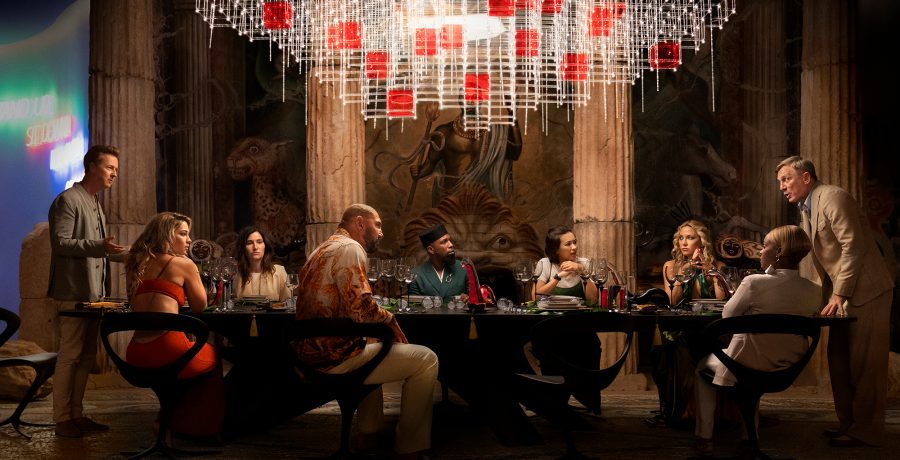
The Edward Norton character is fascinating. He’s this incredibly self-serving, self-mythologising tech billionaire who wants to change the world. There’s a running joke that no one can quite figure out whether he’s a genius or an idiot.
Yeah, well, there are so many specific examples of that in the real world. But when writing the character, I very quickly found the more specific I was, the more boring it became. The Elon Musk jokes didn’t seem very fun or interesting. Sometimes you have to take a step back and look at the overall structure and the systems that allow these people to exist. And why we look up at these people on pedestals.
The current moment certainly feels like fertile ground for writing a character-driven satire, which is partly what Glass Onion is.
Yeah, absolutely. I guess this one is a bit more Strangelove in tone than what came before it, and probably what will come after it. But it goes back to this idea of trying to get into what Christie was doing in her day. She was never political per se, but she always engaged with the culture at the time. I think it’s something that’s kind of been lost from the genre.
When we see contemporary period pieces that are adaptations of Christie’s work, they often feel overly lavish and quaint. But when you read Christie now, it still feels fresh. Y’know, she was dealing with class and gender dynamics in a really interesting way. There’s this perception of her work that it’s like the cover of a game of Clue. It’s stuffy British society, it’s the body in the library… Which Christie herself lampooned in her books. She was very aware of that and was constantly subverting the genre, which I think has helped to prolong her legacy.
In terms of your own career, you’ve directed a sequel before, but this is the first time you’ve made a follow-up to one of your own movies. Does that bring its own added pressure?
With The Last Jedi and this, I’d say the pressure was kind of different, but there’s still the same clickity clack of riding the rollercoaster. The instant you’re at the top, that’s when the nerves set in. With Star Wars it’s a whole set of massive pressures, whereas the success of Knives Out created a good problem for me to solve. That said, a successful movie can quickly turn into this gilded object that is somehow outside of you – even though you made it, it suddenly seems beyond your reach. I’ve never really faced that before in terms of writing something as a follow-up. It was pretty terrifying and I’m sure it will be the same doing the third one.
When does number three start?
I don’t know. I’m just starting to think about ideas for it, but I think I’m probably going to make it as my next film. We’ll see how quickly we can get it together. Let me put this one out there first. Just give me a minute [laughs].
We’ve touched on the political and satirical side of the film but, as with Knives Out, it’s telling that you once again end things on a positive note: truth will out in the end.
As I see it, that’s an essential part of the whodunit. A lot of academic writers have characterised the genre as being essentially Conservative: a crime is committed; chaos is created; the paternal detective swoops in and solves the case, restoring order to society. I see it much more in terms of moral order being restored. So when you step out of the theatre, you’re satisfied that things have been set right in the end. But now that you mention it, maybe I should do a bummer ending for the next one. The killer gets away with it…
Would watch.
Shit, don’t tell me that. Don’t tell Netflix that!
Sorry, Netflix. By the way, I very much enjoyed seeing Noah Segan pop up in this.
[Laughs] I like the idea of him being a bit like Patrick McGoohan in Columbo. He just turns up wearing a different beard each time. But y’know, we’re best friends, and having him hang out on set is always a blast. We’ll always figure out something for him to do.
Has he read ‘Gravity’s Rainbow’ yet?
Noah? No… No one has! [Laughs]. I gave him a copy and I think he got like a hundred pages into it.
What were you reading while you were making Glass Onion?
I’m all about audiobooks, they’re kind of my obsession. Typically non-fiction. It was 2020 and we were in lockdown, so I was probably busy making sourdough starter or something. When I’m writing I don’t generally read Agatha Christie books, just because it feels too close to what I’m doing. Right now I’m reading the Sherlock Holmes short stories and novels for the first time, which Daniel suggested to me. They’re very good.
And what about music?
I have a Glass Onion playlist that I’ve been building since I started writing it. ‘Long Black Limousine’, the Elvis Presley version, was one that I listened to over and over. Also, the George Harrison song ‘Gone Troppo’ off his weird album [of the same name]. Oh, and also Nino Rota’s main theme from [1978’s] Death on the Nile. That was a big influence on Nathan [Johnson]’s score.
You and Nathan recorded the Knives Out score at Abbey Road. Did you get to go back for this one?
I didn’t get to go sadly; I was busy shooting my TV show [Poker Face]. It was magical being there for Knives Out though. The fact we got the opportunity again to record Glass Onion there, with the whole Beatles connection, that was pretty special.
The post Rian Johnson: ‘Sondheim’s my guy’ appeared first on Little White Lies.

Bachelorette Gabby Windey raised some eyebrows among her fans recently, following a series of very flirty exchanges with her Dancing With The Stars co-star Vinny Guadagnino.
Now the former Denver Broncos cheerleader is setting the record straight, according to Page Six.
“I mean we’re friends,” she said of the Jersey Shore alum. “Apparently both of us just like to kind of stir the [pot]. Which is, like, funny. But [the buzz] did happen out of nowhere.”
Gabby’s DWTS partner Val Chmerkovskiy added to the conversation, saying, “It was an inside joke that got away.”
Fans wondered if there could be a romance brewing between the two reality stars — both of whom were cast on Season 31 of DWTS — after reading their flirtatious messages to each other on Instagram.
Last week Gabby celebrated her spot in the DWTS finale with an Instagram post, “I’m filled with so many different emotions – excitement, fear, gratitude, and mourning that this experience will soon end. Thank you to everyone who has continued to support us and I hope to make you proud next week!!”
Vinny congratulated his friend with the playful comment, “Good job baby mamma,” to which Gabby coyly responded, “My main man.”
That same day, Vinny posted an encouraging mantra to his social media, “stop looking for the one . . . be the one, and let them all come to you.”
“Omw (on my way),” Gabby flirtatiously responded.
And before that, the former MTV star had called the Bachelorette alum “as basic as a Starbucks on sunset blvd,” to which she cheekily replied, “if that’s wrong I don’t wanna be right.”
Gabby‘s coquettish exchanges with Vinny seemed especially significant to fans as, she had so recently split from fiancé Erich Schwer. A little post breakup fling, perhaps?
Gabby and Erich got engaged during the Season 19 finale of The Bachelorette, which aired in September. But the couple announced a parting of their ways recently.
“The end of our relationship happened because we weren’t completely in step and in sync with each other in our common goals or just the way we approach life,” Gabby shared during the Nov. 14th episode of the ballroom dance competition.
She quickly added that she and the New Jersey native “weren’t each other’s best match” either, a sentiment he also echoed. They do seem to have a good friendship, though.
Gabby concluded her run on DWTS last night scoring two sets of perfect 10’s from all four judges. She came in second place after Tik Tok star Charli D’Amelio, who likewise received two sets of perfect scores from the judges. But Charli‘s nearly 150 million Tik Tok followers likely kept the mirror ball out of Gabby‘s hands.
Both Charli and Gabby are going on the DWTS Live Tour this spring, however. As is Vinny. I’d score the probability that the flirty friendship will continue a pretty solid 10.
TELL US – DID YOU EXPECT GABBY TO WIN DWTS? DO YOU BELIEVE GABBY AND VINNY ARE “JUST FRIENDS?” DO YOU THINK THERE’S MORE TO THEIR RELATIONSHIP THAN THAT?
[Photo Credit: ABC/Ricky Middlesworth]
The post Gabby Windey and Vinny Guadagnino Exchange Flirty Instagram Messages appeared first on Reality Tea.

As Shakespeare once said, “Something is sexy in the state of Denmark”. And he was right. Because that’s where Mads Mikkelsen is from. The first time I ever saw the Danish daddy was in a little show called Hannibal. He played the titular character, Hannibal Lecter. And I was smitten. He’s like some sort of Norse panther, is he not? Sleek, powerful, and just the right amount of an “I might murder you” vibe. To celebrate the thirst (or just my thirst) for Mads, I’ve put together a list of the best Mikkelsen movies and TV shows available.
There’s something so refreshingly un-Hollywood about Mikkelsen. He isn’t a brawny, square-jawed superhero type. And he isn’t a celebrity personality who you can just point a camera at and say, “go!” This man is an ACTOR. In every role he plays, he is transformative. When you’re watching a Mads Mikkelsen film, you can tell that he’s leading with the character rather than with himself. And perhaps that’s what makes him so interesting to watch. There always seems to be something going on underneath his performance—some subtle thing that’s left unsaid. It’s what makes him so enticing as an actor and so weirdly attractive as a human being. And that’s the perfect segue for my first pick.
Matt Roloff: Okay, Here’s Why I Haven’t Proposed to Caryn Chander… Yet
The countdown is on for Matt Roloff.
And he knows it, too.
The Little People, Big World star has been dating Caryn Chandler for years now and has openly talked of late about proposing.
It seems like a sure thing that these two will one day walk down the aisle… it’s just become increasingly difficult to predict exactly when that day will arrive.

On the latest episode of his family’s reality show, Matt actually addressed the delay in his engagement, blaming a living situation that finds him “in limbo” as the the reason for why he has not yet put a ring on it.
“It just doesn’t make sense for us, for me to propose to her, for us to get married, until we have a place that we can land in,” he explained on air.
“And neither of our houses work for each other. So it’s just very, very disappointing.”
Matt is busy building his dream home on his property in Oregon and is residing in a mobile home until construction is complete.

Chandler, for her part, has not publicly commented on her boyfriend’s postponement of the big question — but she appears to be making some pretty major life decisions of her own these days.
According to recent reports, Caryn is planning to move to Arizona full-time.
She’s even planning to do so regardless of whether or not TLC picks up Little People, Big World for another season, having allegedly grown sick and tired of all the Roloff in-fighting.
As loyal viewers know well, there’s been extreme tension between Matt and his kids ever since the former put a portion of his farm property up for sale in May 2022.

“Matt really wants another season, but Caryn is completely done,” an insider told The Sun a few weeks ago of where Chandler stands when it comes to running it back on the small screen next year.
“She thinks there are too many disagreements with what they want to say and do on air, and too much family drama.
“She feels as though she’s the one always caught in the middle trying to mediate…
“Caryn is ready to just have Matt hand the farm over and they can go to Arizona and retire. That would be her dream scenario, but whether Matt agrees is yet to be decided.”

Little People, Big World viewers, meanwhile, have seen Matt and Caryn discuss marriage in the past, and just last season, Caryn accidentally referred to Matt as her husband.
“I’m married to the guy that owns a pumpkin patch,” she said on camera before realizing that she had misspoken. “I’m not married. Did I just say married?”
“You’re almost married to a guy with the pumpkin patch, is the way I could put it,” Matt responded.
That was back then, of course.
Now? All this time later?
Caryn still isn’t married to the guy who owns a pumpkin patch, as folks start to wonder: Will she ever be?!?
Matt Roloff: Okay, Here’s Why I Haven’t Proposed to Caryn Chander… Yet was originally published on The Hollywood Gossip .

The music record label, Blockberry Creative, sent shockwaves through the world of K-pop when they announced on November 25, 2022, that Kim Ji-woo, known professionally as Chuu, had been removed from the girl group LOONA. The K-pop genre has experienced a rise in popularity in recent years. South Korea has capitalized upon this fame by forming sophisticated boy and girl groups capable of producing mesmerizing performances and catchy tunes, and of becoming K-pop idols.
LOONA is just one of many groups that have thrived in this K-pop era. However, the group gave itself an edge with the bold and unique manner in which it established itself. For starters, LOONA is quite a large girl group, consisting of a total of 12 members. To capitalize on their numbers and talent, LOONA established and introduced each member of its group by having them release a solo single. This introduction process went on from 2016 – 2018 until all 12 members were revealed: Haseul, Vivi, Yves, Jinsoul, Kim Lip, Chuu, Heejin, Hyunjin, Gowon, Choerry, Olivia Hey, and Yeojin.
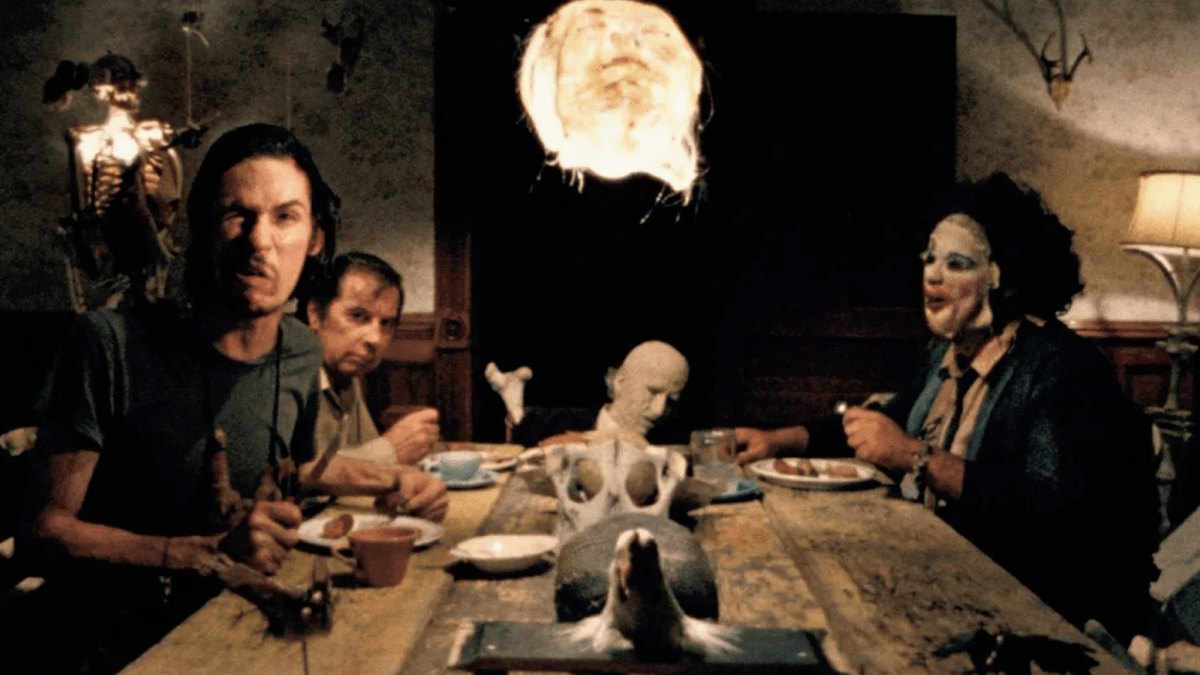
Thanksgiving in America can be a tumultuous time. Turkey deep friers are just waiting to burn down the house. Black Friday shoppers are milling outside of big box stores like coupon-loving zombies. Covid is still a thing. But perhaps scariest of all… it means a long night with family.
Even the sweetest, most well-adjusted families are prone to fits of chaos during Thanksgiving dinner. Whether it’s the drunk uncle who decides passing the cranberry sauce means it is also time to pass on his favorite Fox News talking point, or the sister-in-law who makes passive aggressive compliments about the side dish you brought, Thanksgiving is all about surviving family.
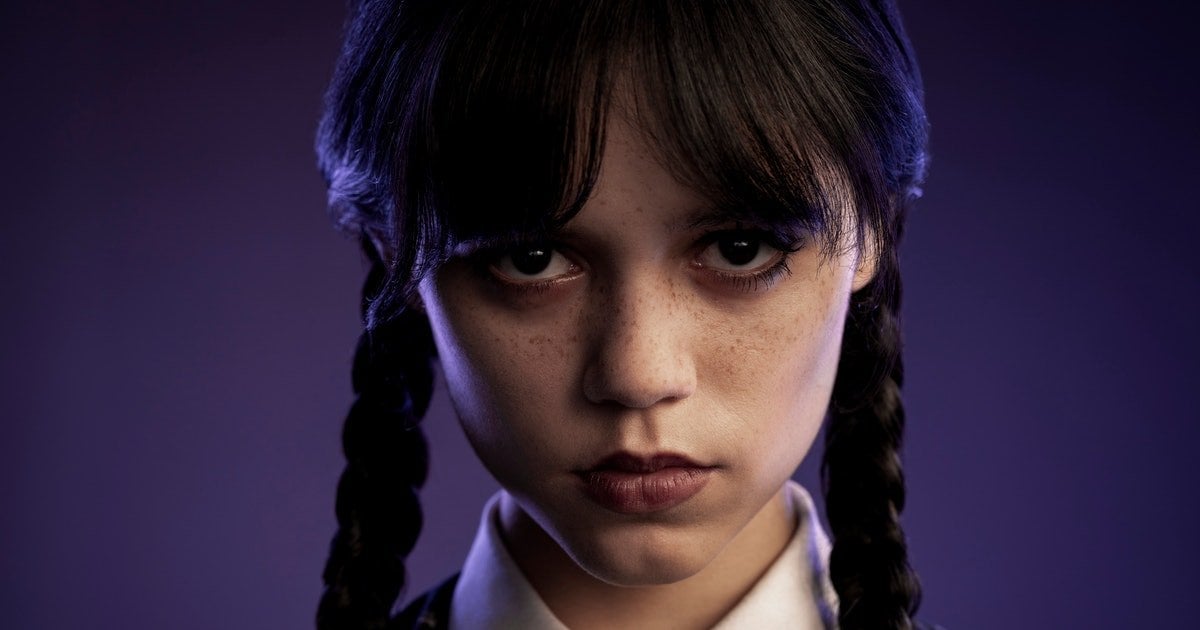
Netflix’s Wednesday premiered on November 23, 2022, marking the first live-action Addams family TV adaption since The New Addams Family in 1998. The series is directed by the gothic horror king, Tim Burton, and sees Jenna Ortega take on the titular role of Wednesday Addams. Wednesday is also a unique series in that it is the first Addams family adaption to focus solely on one member of the family. However, it’s no surprise that Wednesday was picked as the main protagonist.
Wednesday is the one member of the Addams family who, in nearly every interpretation, manages to shine on her own and isn’t too dependent on her family as Gomez, Morticia, and Pugsley tend to be. Additionally, she boldly breaks the mold of what a little girl is expected to be by being independent, unemotional, fierce, and with a morbid sense of humor. Ortega did a masterful job of portraying Wednesday as an “outcast” at odds with both her family and the world. However, Wednesday has been onscreen since 1964, with several actresses portraying the character and each putting their twist on her. Here is every actress who has portrayed, or voiced, Wednesday, ranked worst to best.
Benoit Blanc Has Mastered the Art of Solving a Murder in ‘Glass Onion’: Do So With a Woman’s Help
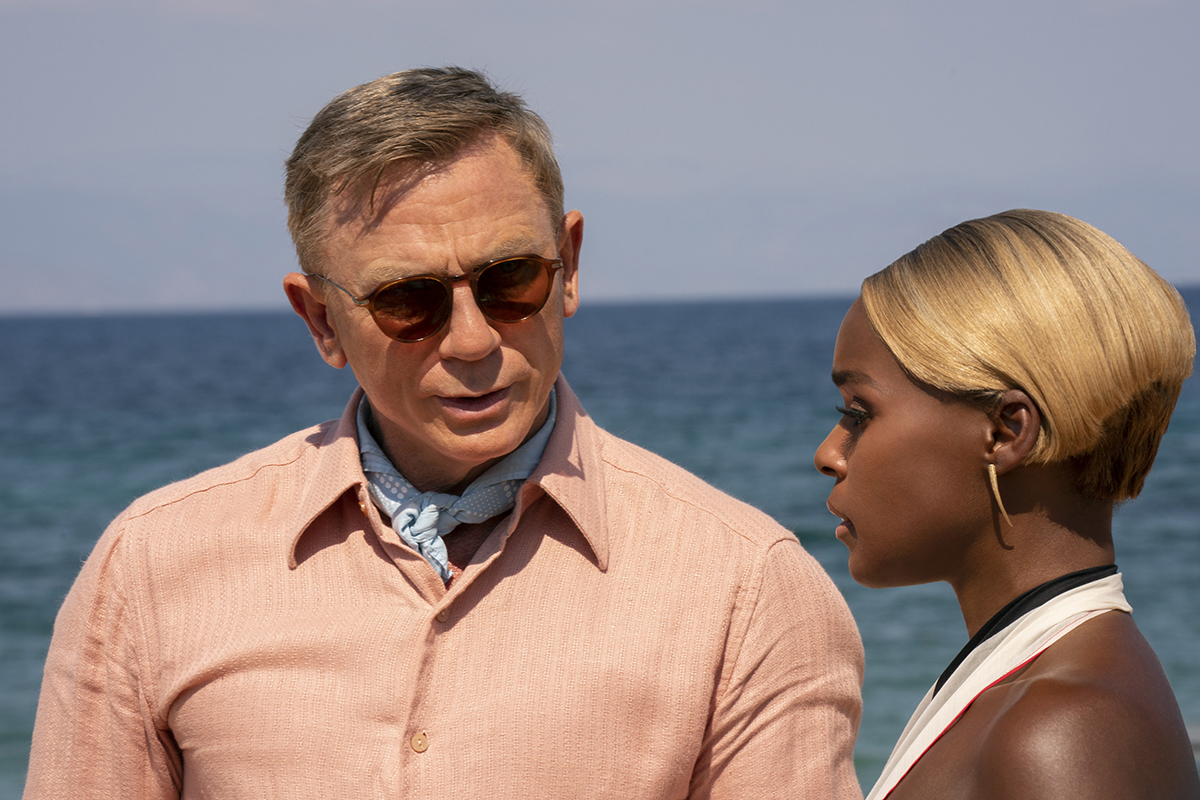
Glass Onion returns to the world of Knives Out and Benoit Blanc (Daniel Craig) and reminds us just how good writer/director Rian Johnson is at murder mysteries. But with Glass Onion also comes a lot more information about Blanc and how he works his cases. In my review for the movie, I gave it 5 stars because it is perfect, but I also want to break down a bit of what works in the movie.
And one of those things is a new working relationship that Blanc finds that mirrors, in a lot of ways, his connection with Marta in Knives Out. So, let’s talk about it, but beware, there will be spoilers ahead.
The adorable friendship between Donald Trump and Kanye West may be over.
On Thursday, the rapper shared a video on Twitter than confirmed he had brought unabashed White nationalist and Holocaust denier Nick Fuentes to a dinner with the one-term President at his Mar-a-Lago estate in Florida.
In the footage, West said Trump was “really impressed with Fuentes,” who has repeatedly made antisemitic and racist comments as chronicled by the Anti-Defamation League.
The troubled artist also said Trump screamed at him at one point during this get-together.

“The thing that Trump was most perturbed about [is] me asking him to be my vice president,” West said in one of the videos published on his recently-unlocked Twitter account on Thanksgiving night.
Added the celebrity, who has announced plans to run for President in 2024:
“I think that was, like, lower on the list of things that caught him off guard.”

In his own set of messages on the platform Truth Social, Trump acknowledged that this meal took place.
“This past week, Kanye West called me to have dinner at Mar-a-Lago. Shortly thereafter, he unexpectedly showed up with three of his friends, whom I knew nothing about,” he wrote.
“We had dinner on Tuesday evening with many members present on the back patio. The dinner was quick and uneventful.
“They then left for the airport.”

West, of course, has been making negative headlines for weeks.
He’s lost a number of endorsement deals of late — with Adidas even cutting ties with the superstar late last month — after making his own set of anti-Jewish, hate-filled remarks.
How bad have things gotten?
On Friday, even Trump tried to distance himself from Kanye and, most notably, from Fuentas.

“I told him he should definitely not run for President, ‘any voters you may have should vote for TRUMP,’” the former president wrote on Truth Social.
“Anyway, we got along great, he expressed no anti-Semitism, & I appreciated all of the nice things he said about me on Tucker Carlson.
In perhaps the funniest closing to any social media message ever written, Trump added:
“Also, I didn’t know Nick Fuentas.”

Fuentes was present on the grounds of the U.S. Capitol on January 6, 2021, and has often promoted Trump’s unsubstantiated claims about fraud in the 2020 election.
The House select committee investigating the events of January 6 issued a subpoena to Fuentes in January.
“Nick Fuentes, unlike so many of the lawyers and some of the people [Trump] was left with on his 2020 campaign, he’s actually a loyalist,” West said in his Twitter clip, praising the vile human being and adding:
“When all the lawyers said, ‘forget it, Trump’s done,’ there were loyalists running up in the White House, right? And my question would be, ‘Why, when you had the chance, did you not free the January 6ers?’”
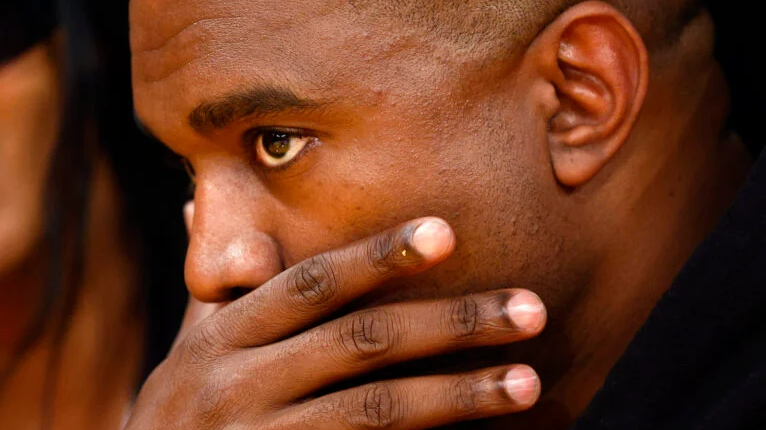
As West spoke in this video about counseling Trump to “go and get these people that the media tried to cancel,” the video flashed photos of former Trump campaign manager Corey Lewandowski… Trump ally Roger Stone… and conspiracy theorist Alex Jones.
The latter has been ordered to pay over $1 billion to the families of the Sandy Hook victims for lying about their children’s deaths.
He may be the one person on the planet more awful than Nick Fuentas.
Donald Trump: I Don’t Know the Neo-Nazi Kanye West Brought to Dinner with Me! was originally published on The Hollywood Gossip .
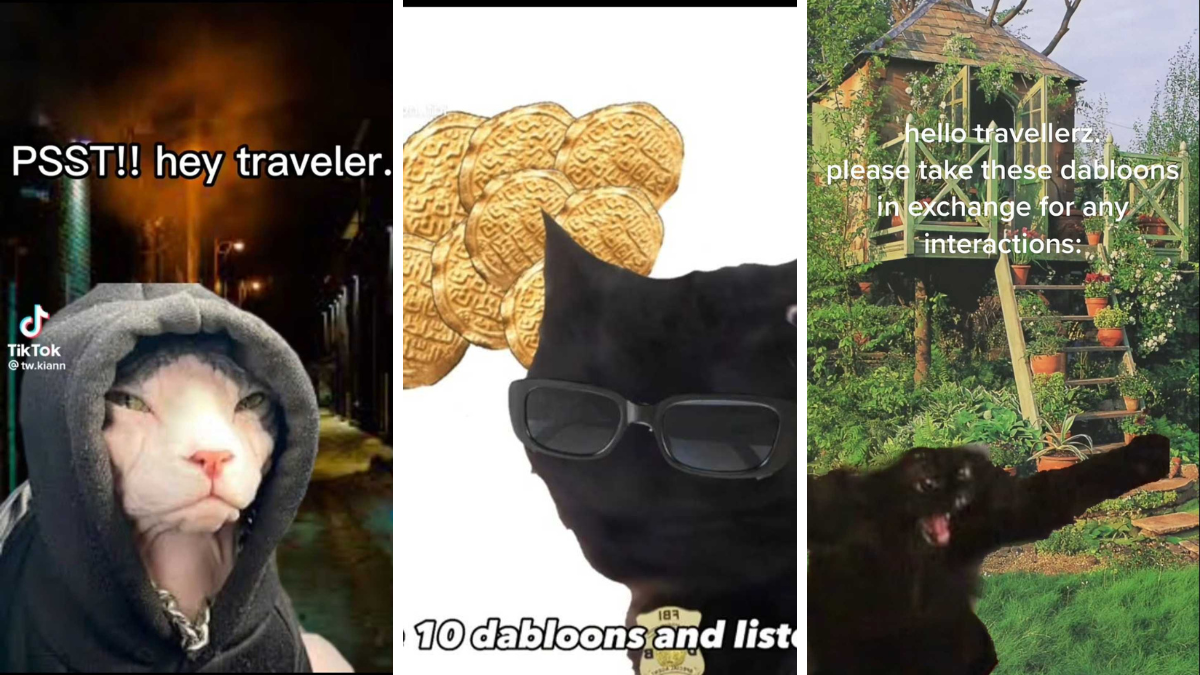
TikTok has been known to spark some weird trends and bizarre subcultures, but the latest one is creating millionaires. Oh no, wait—dabilllionaires. Same thing, right?
Sadly not. TikTok users are trading dabloons with one another in exchange for imaginary quests, usually handed out by mysterious cats, addressing you with polite, slightly medieval conversation.

The Club Q shooting has brought the prejudice and violence that many LGBTQ+ people in America and around the world face into a sharper focus. The tragic events received a lot of attention on social media from LGBTQ+ people, allies, and anti-LGBTQ+ extremists.
Predictably, anti-LGBT campaigners have used the shooting to both blame the victims of the shooting and make sweeping statements about the community as a whole. While it’s not a new phenomenon, there has been a rise in the rhetoric around LGBTQ+ people being ‘groomers’ and associating queer sexualities and identities with child abuse.
All I Want for Christmas Is You (To Have a More Sustainable Holiday!)

Sustainable, clutter-free, eco-friendly, whatever you call it, having a Green Christmas is something more and more people are becoming conscious of. But you don’t need an army of elves and reindeer to pull off this Christmas miracle. Here are nine tips for a Green, Sustainable Christmas!
1. Reusable Wrappings
About 50,000 trees are cut down to produce wrapping paper for Britain alone and most of that will end up in landfills, as very few kinds of wrapping paper are recyclable due to the plastic shine or designs. However, there are plenty of alternatives: Beeswax wrappers, reusable gift bags, and cloth bags can all be reused multiple times for many Christmases to come.
Janelle Brown’s Aunt Says for Sure: My Niece is Done with Kody!
According to someone who ought know very well, the long-gestating rumor is a legitimate really.
Yes, Sister Wives fans.
Janelle Brown really has left her emotionally abusive husband.
In an exclusive interview with In Touch Weekly, Janelle’s own aunt, Kristyn Decker, confirmed this development, saying the following to the tabloid:

As far as any relationship, any marriage goes, I think [Janelle’s] similar to, in Meri’s situation where she’s just staying in a marriage that’s not really a marriage.
I don’t think they’ve had a marriage for a long, long, long time. It’s just platonic.
In one sense, of course, this is major news.
In another, however, veteran TLC viewers have witnessed Kody saying pretty much the same thing in the past, stating openly many months ago that he isn’t in love with Janelle.

“It’s like just this antagonistic relationship. It’s not cooperative. I don’t know why,” Kody said on the latest Sister Wives episode, too.
Decker – who assists victims of polygamy through her Second Choices Coalition nonprofit because she was once a member of a plural marriage herself – continued to In Touch:
“That’s pretty obvious that they really haven’t been together in a long time, at least marriage wise.”
She went on to say that the way the family’s Mormon fundamentalist sect is set up, the burden falls on the women to walk away from the man.

“That’s why [Kody] wants them to leave,” she says, explaining in further detail:
“If they’re going to, if they kick him out, then they are looked down upon much worse. Kody’s got to get them to [leave on their own].”
Christine, of course, went ahead and did just this about a year ago.
She remains close to Janelle, too, prompting many to think that Christine has influenced Janelle’s decision to go off on her own.

Previously, Gwendlyn Brown also said online that Janelle was no longer Kody’s spiritual spouse.
Kody legally wed first wife Meri Brown in 1990 and then spiritually got married to second wife Janelle in 1993.
Kody eventually divorced Meri so that Robyn could become his official wife in 2014 and he could adopt her three children from a previous marriage.
After his semi-recent split from Christine, Kody remains spiritually married to Meri and Janelle as well as legally married to Robyn… although the former two reality stars don’t seem remotely close to the father of their kids.

“I’m in a very vulnerable place and if I cross a line, will she cross another line?
“And that sort of cynicism comes, I think, from unwinding 20 years in plural marriage and Christine leaving,” Kody said in a confessional on November 20 of Janelle and where things stand.
“I don’t think Janelle or I are being honest or realistic in this relationship as we communicate with each other about this stuff.”
Kody added on the episode that he felt as if Janelle was “rejecting” him and “choosing to have a [relationship] with Christine” instead.
Janelle Brown’s Aunt Says for Sure: My Niece is Done with Kody! was originally published on The Hollywood Gossip .
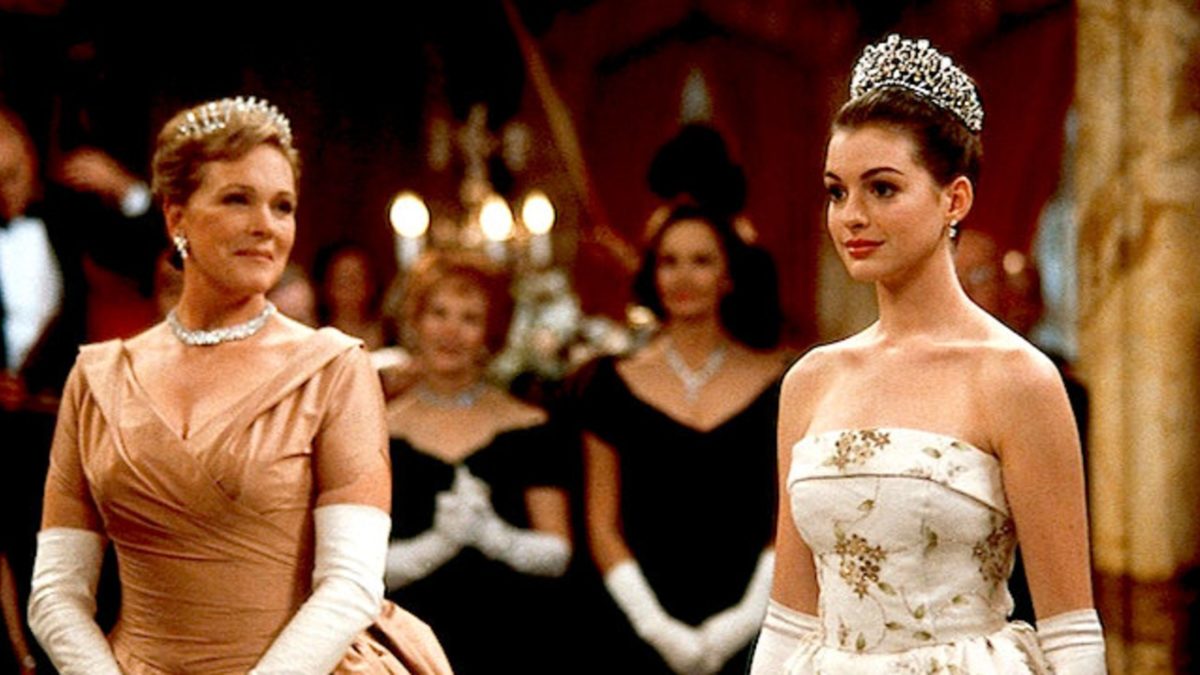
![Forest Essentials [CPV] WW](https://s3-us-west-2.amazonaws.com/pcw-uploads/logos/forest-essentials-promo-codes-coupons.png)